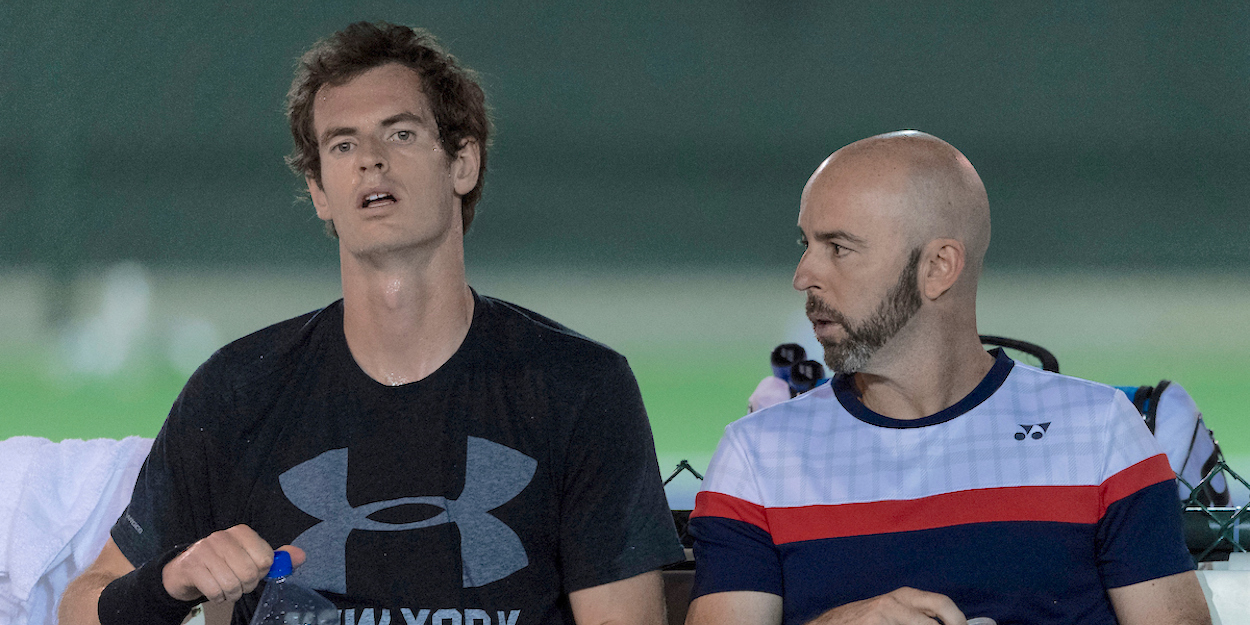
On-court coaching: Is it good to talk? The players opinion…
On-court coaching was allowed at some men’s events during lockdown, so would players like it at tour level? We asked some who played at Patrick Mouratoglou’s Ultimate Tennis Showdown, where coaches talked to their players via headsets, and others who competed at Roehampton in the Battle of the Brits, where coaches sat on court
ANDY MURRAY
Battle of the Brits
“I’m not a massive fan of on-court coaching. I don’t really like it that much. But I do think that unless it’s policed properly I would rather it was allowed, because if your coach is not coaching you from the side of the court and your opponent is getting coached but it’s not being policed and they’re not getting punished for coaching, then you’re at a competitive disadvantage. I think most people on the tour would agree that it happens quite often and there’s not maybe enough done about it. So unless they’re able to police it – and I don’t know if they ever will – I think you probably should be allowed to, because I wouldn’t want to be at a disadvantage because my opponent’s being coached and I’m not.”
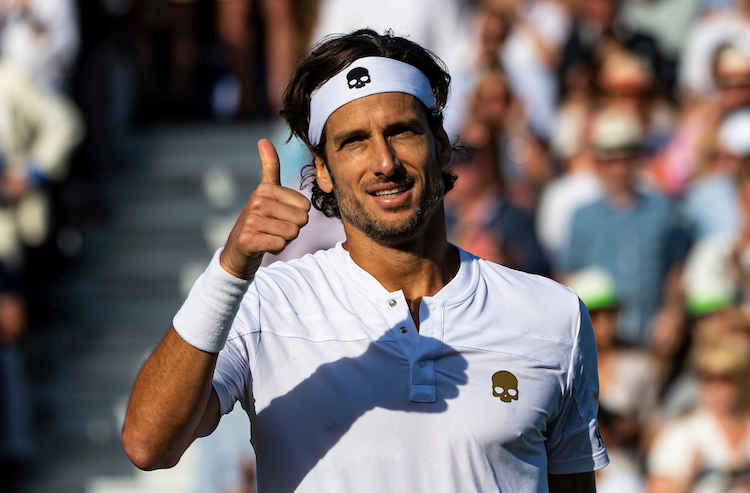
FELICIANO LOPEZ
Ultimate Tennis Showdown
“I love it. Personally I think it’s something that we could have in professional tennis. I know there are many people who are against coaching and I understand that tennis is a very traditional sport, where sometimes changes can take a long time to happen, but there are things from this format, from UTS, that are definitely good for tennis, especially for the audience. I think sometimes we have to deliver something different for the audience – and this is what this format is all about. I’m very happy to be part of this. I think it’s a great initiative and hopefully it will last a long time.”
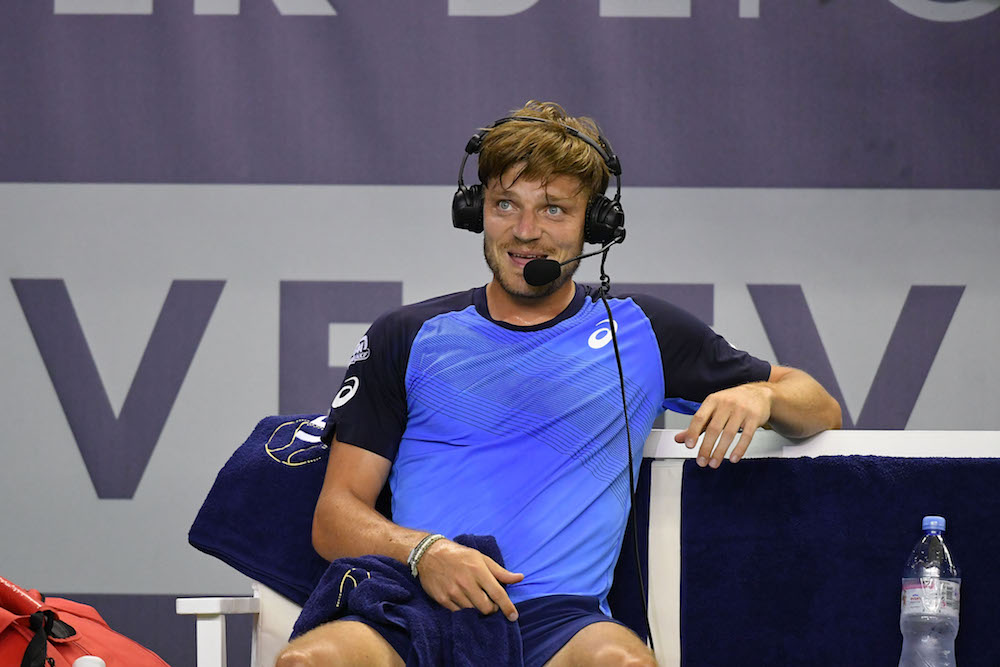
DAVID GOFFIN
Ultimate Tennis Showdown
“Coaching time-outs? Why not? But like I always say, when there is a coaching time-out it has to be in private between the player and the coach. What I like, for example, is when Thomas [Johansson] is just next to the bench or three metres higher up [in the stands] and I can just tell him two or three words and he can say the same, so that I can prepare for the next set or the next game. That’s all we need sometimes. What I don’t like is what they have on the WTA tour, when the coach comes on court, you have to pay attention, you have to wear a microphone and everyone can hear what you say. I don’t find that kind of thing very comfortable. I just prefer to have a few words with my coach when he is not far away from the court.”
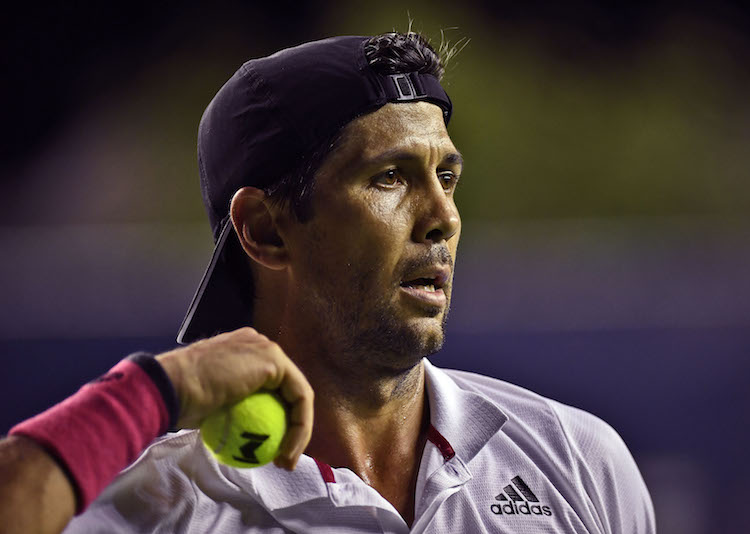
FERNANDO VERDASCO
Ultimate Tennis Showdown
“I always like to have my coach helping me. I think all sports have that. Obviously some people will say: ‘No, tennis has been like this for ever, so why change an essential part of tennis?’ I completely respect that, but in my opinion at the end of the day your coach is your coach. His job is to coach you, to help you, so to have him there in your corner but not allow him to talk to you, I think it’s completely senseless. Why have a coach? Just to have him sit there clapping and saying: ‘Let’s go, let’s go’? Do I need a coach like that? You could take cheerleaders to your matches and get them to do the same job. I’m not saying that we should have a coach on court talking to you all the time, like in Davis Cup, but maybe we could have an occasional coaching time-out, perhaps between sets, where you can put on your headset and talk. I would like that.”
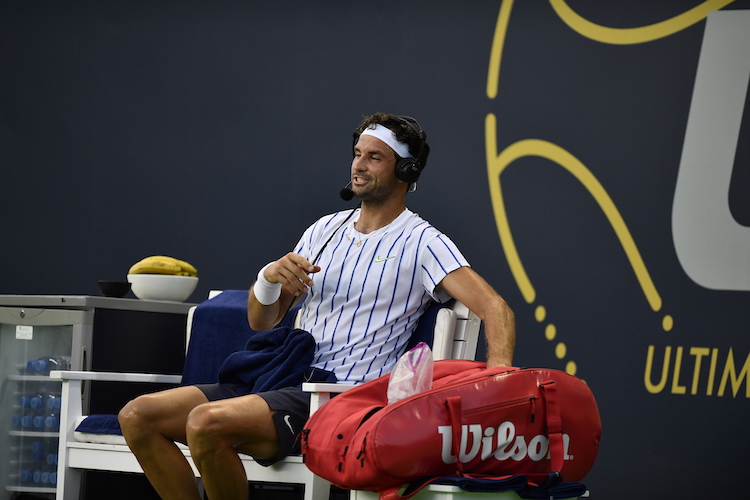
GRIGOR DIMITROV
Ultimate Tennis Showdown
“Personally I never like things to change. I’ve spoken about this to Patrick Mouratoglou and we see things a bit differently. I think it’s a great idea, but from a personal point of view I wouldn’t want to do that. The reason for that is just the way I’ve thought about tennis ever since I was a kid. You’re out there on the court on your own. You need to find a way. I know that a tennis court can be one of the loneliest places on earth, but that’s also the passion of the game for us. One of the trickiest parts is how to find a way to beat your opponent, how to get a mental edge. Tennis has become such a mental sport. Everybody can hit forehands and backhands, everyone moves well. There are so many things that everybody can do. Maybe with a few tips here and there everything might change [in a match], but I’m a big fan of having to find your own way out there.”
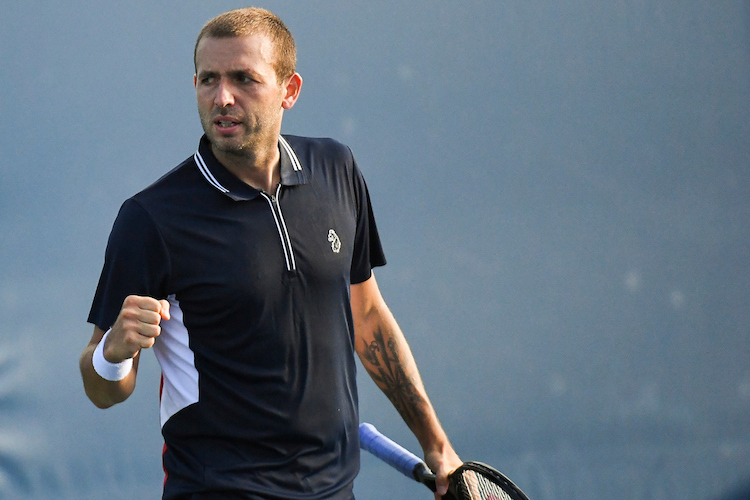
DAN EVANS
Battle of the Brits
“Personally I would have no issues with on-court coaching. I don’t think it needs to happen at the Grand Slams or on the tour, but maybe you could have a few tournaments in the year where you had coaching. Especially in this sort of environment [at the Battle of the Brits], I think it’s great to give an insight into what we think. I’ve not listened to all the other conversations this week, but I’m sure there have been times when players and coaches have disagreed – and it would be interesting to see how they worked it out.”
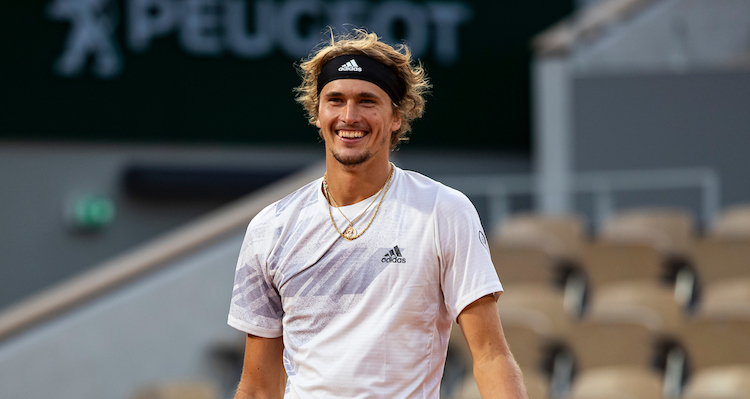
ALEXANDER ZVEREV
Ultimate Tennis Showdown
“I don’t think on-court coaching would change the sport, but I think it would be fun and it would be entertaining. It’s an idea that has already been out there for a long time. I think it’s a better idea than the no-let rule or shorter sets. I think on-court coaching is more realistic than the other stuff.”
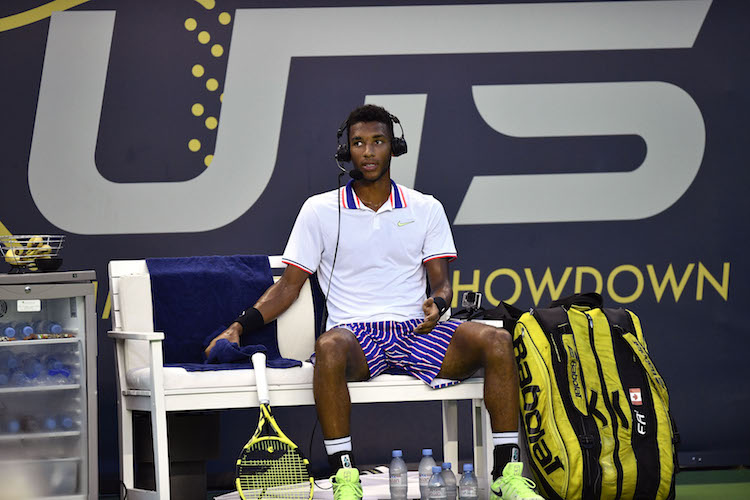
FELIX AUGER-ALIASSIME
Ultimate Tennis Showdown
“I’m not sure about on-court coaching on the tour. I think it kills the essence of the sport. I like some of the things that are being done here at UTS, but with regards to the on-court coaching, I always see the sport of tennis as two fighters or gladiators going out on the court. I feel like if you’ve done everything you need to do before the match, if you’re ready, you find solutions yourself. I’ve done that since juniors. I’ve always been focused on finding the solutions myself. The coaches from outside can see things, but they don’t feel what you feel on the court. They could have on-court coaching for some players because I think some like it. For me personally I’m probably never going to use it, but I understand that some players need it.”
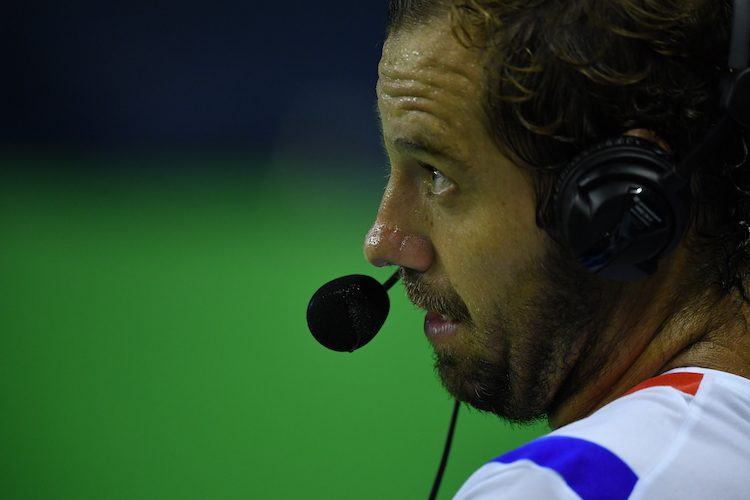
RICHARD GASQUET
Ultimate Tennis Showdown
“I would be OK with having on-court coaching on the tour. Even now players talk to their coaches on the court. Everybody is doing it, despite the fact that you can be warned for it. For me it would be good if you could talk to your coach without being fined. I think it should be OK to talk to your coach for a little bit, with a camera or something like that. You could show some emotions while you’re talking. It could be good.”
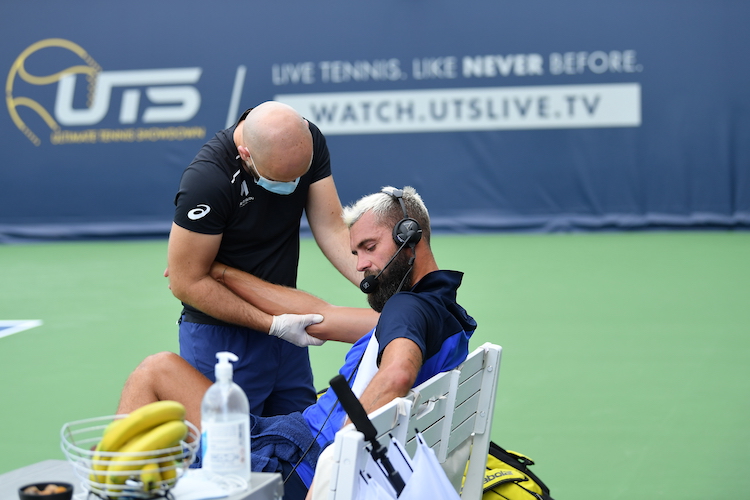
BENOIT PAIRE
Ultimate Tennis Showdown
“I’ve liked the on-court coaching. Normally during a match I talk a lot, so I think that sometimes when you’re a little bit angry about the score, or about something that happened in the match, it can be good to talk to your coach and get some advice. I think it would be good to have it on the ATP tour. Maybe if we were allowed it once in each set, because it can take up a bit of time.”
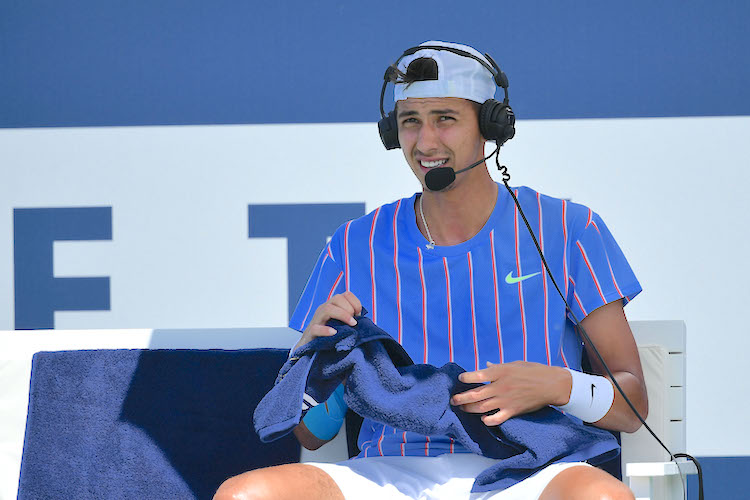
ALEXEI POPYRIN
Ultimate Tennis Showdown
“If you use the on-court coaching at the right time then it’s very helpful. If you use it just for the sake of using it, it can be a momentum killer. But I think all the coaches, including mine, have used the coaching time-outs at the right time. It’s very useful and I think it’s something that should be thought about being implemented. A coach is part of our tennis careers. He’s probably the most important person in our tennis career. It would be nice for the outside world – the public and the fans – to hear what he has to say also, so I think that’s something that should be thought about. Coaching is a big part of the game, whether you like it or not. Coaching also happens secretly during matches. It would just be a way of making it legal and enabling coaches to do their job when we’re playing, instead of just sitting there and clapping.”
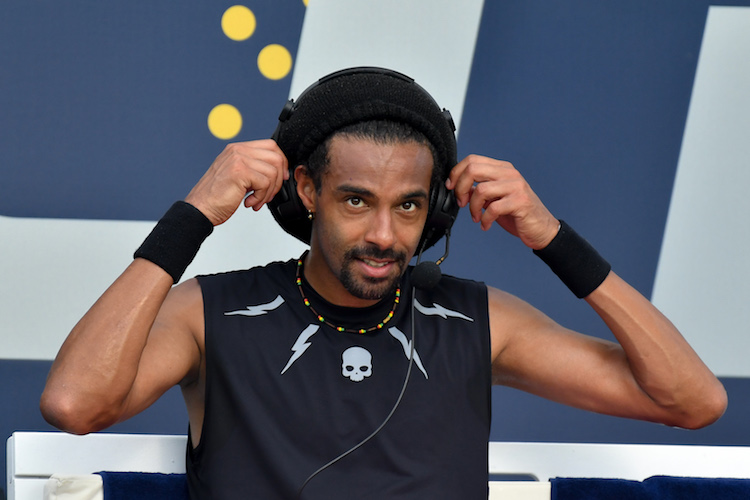
DUSTIN BROWN
Ultimate Tennis Showdown
“You learn to try and do things yourself on the court, but it’s always nice to hear from your coach whether you’re doing the right thing or maybe you could change this or that, just to clarify in your mind whether what you are doing is correct or not. I guess four eyes always see more than two eyes.”
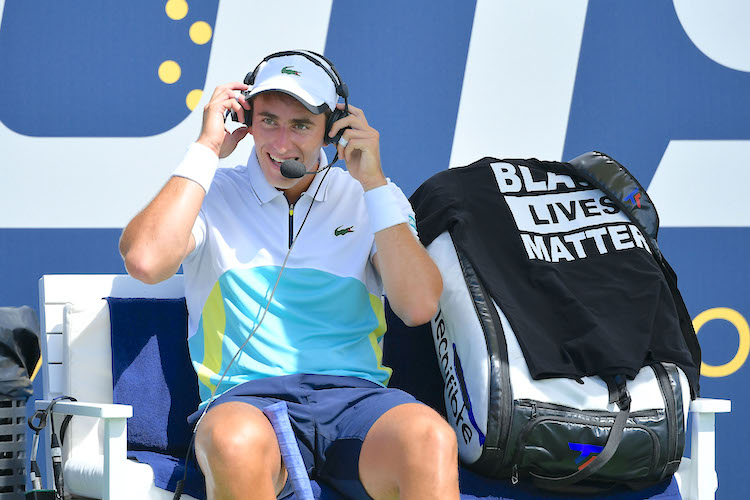
ELLIOT BENCHETRIT
Ultimate Tennis Showdown
“It’s really useful. For me I’m still young so I need to improve a lot on little details in the match. It’s pretty good for me. I need to take the time to listen to the coach and try to put into practice what I need to do to improve my game. Would I like to see on-court coaching introduced elsewhere? For me, no, because tennis is an individual sport and we have to be alone on the court. But for sure if the UTS tournaments are still happening, especially before big tournaments, that’s pretty good because we can work on what we need to do on court. Then during the Challenger tour, on the ATP tour or at the Slams we’ll be alone, but we’ll be able to play some matches during the year – almost like practice matches – when we’re being coached.”
- Join the tennishead CLUB and receive £250/$350 of FREE GEAR including ASICS Gel-Resolution 8 trainers, shorts, shirt & socks
- Keep up to date with the breaking news & tennis action at our tennis news section
- Win amazing prizes by entering our competitions
- Learn more about your favourite players including Roger Federer, Rafa Nadal and Novak Djokovic
- Check out the latest tennis equipment with our tennis gear reviews
- Receive regular updates in our legendary free newsletter
- Read in depth features with stunning photography in tennishead magazine
- Can’t visit the tournaments you love? Check out our guide on how to watch tennis on TV
- Don’t miss a thing with our Live Scores service
- Follow tennishead on social media at Facebook, Twitter, Instagram & YouTube
- EXCLUSIVE 5% DISCOUNT for all tennishead readers on tennis rackets, balls, clothing, shoes & accessories with All Things Tennis, our dedicated tennis gear partner


